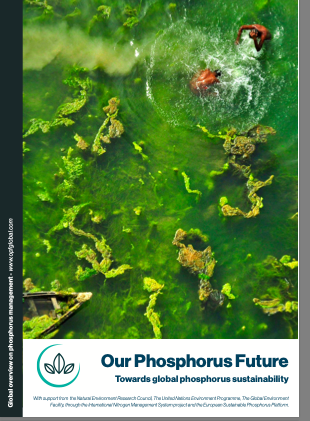Phosphorus Project Concludes
Recommendation: 50/50/50
18 Jun 2022 by The Water Diplomat
EDINBURGH, United Kingdom

A new report addressing the challenges and solutions to the current phosphorus crisis recommends a “50/50/50” approach: a 50% reduction in global phosphorus pollution and a 50% increase in recycling by the year 2050.
Phosphorus is an essential but often overlooked mineral resource, vital for life on earth. It is extracted from phosphate rock for use in crop fertilisers, livestock feeds and food additives. A 5-year project (“Our Phosphorus Future”, or “OPF”) was convened to provide critical direction to progress sustainable phosphorus use.
The new report compiles the research of the project and identifies the priority issues, possible solutions and the requirements to address sustainability both locally and globally.
Five countries - Morocco, China, Egypt Algeria and Syria - dominate the global production of phosphate rock from which phosphorus is extracted. This exposes the market to fluctuations in costs and supply. This instability is then exacerbated by other disruptions such as political instability or the cost of transportation.
Used as a supplement in fertilisers, phosphorus ends up in field run-off and pollutes water-bodies. Excessive levels of phosphorus accelerates the growth of algal blooms that produce harmful toxins to both animals and humans.
The report suggests the following:
- integration of livestock and crop production, with application of manure to crops, thereby reducing the demand for chemical fertilisers;
- adaptation to more sustainable diets, leading to a reduction of phosphorus required for animal feed;
- reduction in global food waste
- improvement in wastewater treatment to reclaim phosphorus from sewage, thereby protecting waterbodies from pollution.
The report was developed through the participation of over 100 scientists and industry experts. It is hoped that the findings will raise awareness of the need to develop more sustainable management of the mineral and help to inform government, farmers and industries.
The OPF project was delivered through a partnership between the UK Centre for Ecology and Hydrology and the University of Edinburgh, UK.
